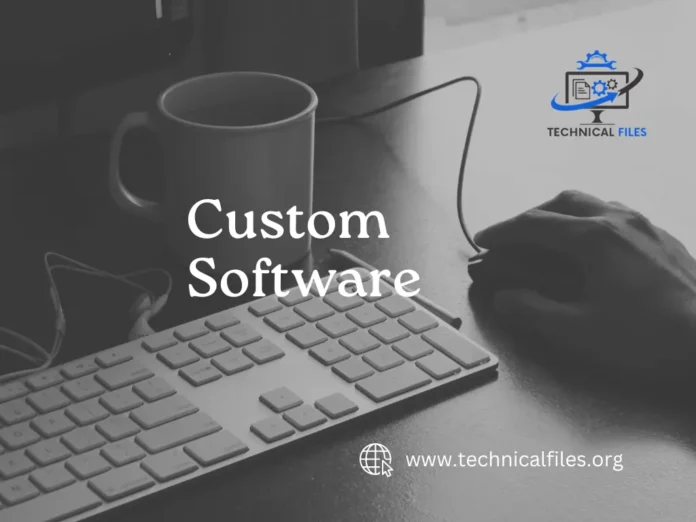Introduction:
In the ever-evolving landscape of technology, businesses are constantly seeking innovative solutions to stay ahead of the curve. One such solution that has gained prominence is custom software development. Tailored to meet specific needs and challenges, custom software has become a game-changer for organizations across industries. In this blog post, we will explore the significance of custom software, its benefits, and system requirements and answer frequently asked questions. Join us on a journey through the realm of bespoke solutions, where every line of code is crafted to propel businesses forward.
Why Custom Software?
In a world inundated with off-the-shelf solutions, the allure of custom software lies in its ability to address unique business requirements. Unlike pre-packaged software that offers a one-size-fits-all approach, bespoke solutions are tailored to align with the specific needs and goals of an organization. This not only streamlines processes but also fosters a competitive edge by providing functionalities that are precisely tuned to the business’s operations.
Benefits of Custom Software:
1. Tailored Functionality:
Custom software is designed to cater to the exact needs of a business. This ensures that every feature and functionality aligns seamlessly with the organization’s processes, leading to increased efficiency and productivity.
2. Scalability:
Off-the-shelf solutions may fall short when a business undergoes growth or expansion. Custom software, on the other hand, can be easily scaled to accommodate the evolving needs of an organization, making it a sustainable and long-term investment.
3. Enhanced Security:
Security is a paramount concern in today’s digital landscape. Custom software allows businesses to implement robust security measures tailored to their specific requirements, providing a higher level of protection against potential threats.
4. Cost-Efficiency:
While the initial investment in custom software development may seem higher than purchasing off-the-shelf solutions, the long-term cost benefits are significant. Custom software reduces the need for multiple licenses, additional features that are not relevant, and the expenses associated with adapting a generic solution to fit specific needs.
System Requirements for Custom Software:
Before diving into the world of custom software, it’s crucial to understand the system requirements to ensure a seamless integration into your business operations. The requirements may vary based on the complexity and nature of the custom solution, but some general considerations include:
1. Hardware Requirements:
- Processor Speed and Architecture
- RAM (Random Access Memory)
- Storage Space (Hard Disk or SSD)
2. Software Dependencies:
- Operating System Compatibility (Windows, Linux, MacOS)
- Database Management System
- Third-Party Integrations
3. Network Requirements:
- Bandwidth and Internet Speed
- Security Protocols (Firewalls, Encryption)
It’s advisable to consult with a professional software development team, such as the experts at Technical Files, to determine the specific system requirements tailored to your custom software project.
Frequently Asked Questions (FAQs):
Q1: How long does it take to develop custom software?
A: The timeline for custom software development varies based on the complexity and scope of the project. Simple solutions may take a few weeks, while more intricate projects may extend to several months. The team at Technical Files works closely with clients to establish realistic timelines and deliver high-quality solutions efficiently.
Q2: What is the cost of custom software development?
A: The cost of custom software development depends on factors such as complexity, features, and development time. Technical Files offers transparent pricing models, ensuring clients have a clear understanding of the investment required. While custom solutions may have a higher upfront cost, the long-term benefits often outweigh the initial expenses.
Q3: How can I ensure the security of my custom software?
A: Security is a top priority in custom software development. Technical Files employs industry best practices, including secure coding standards, regular security audits, and data encryption, to ensure the robustness of your custom solution. Additionally, ongoing maintenance and updates are essential to address emerging security threats.
Q4: Can custom software be integrated with existing systems?
A: Yes, custom software is designed to integrate with existing systems and workflows seamlessly. Technical Files conducts a thorough analysis of your current infrastructure to ensure a smooth integration process, minimizing disruptions to your business operations.
Visit maxternmedia website to learn more about it.





